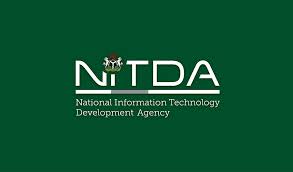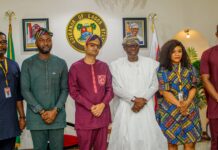Lagos State Commissioner of science and technology, Hakeem Fahm in a keynote address, at the National Information Development Agency ( NITDA) regional stakeholders forum, held in Lagos today, calls for more collaboration by all the relevant stakeholders, to ensure that the fast emerging digital economy does not leave anyone behind.
He said the introduction of unique and powerful digital technologies, platforms, and infrastructures has fundamentally altered innovation and entrepreneurship and that digital technologies have larger consequences for value creation and value capture than merely providing new options for inventors and entrepreneurs.
To realize the digital technology’s full social and economic potential while avoiding unexpected consequences, Nigeria must immediately strengthen local cooperation and form a high-level panel on digital cooperation to understand better the important digital opportunities and challenges that lie ahead, he said.
Fahm said digital advancements have created huge wealth in record time, yet that wealth has been concentrated in the hands of a small number of entities, organizations, and governments warning that the pattern is likely to continue under existing rules and restrictions, contributing to increased inequality
According to him inclusivity is critical to creating a digital economy that works for everyone as new technologies, such as blockchain, machine learning, and, in particular, artificial intelligence will surely result in a significant shift in the labor market, including the elimination of jobs in some sectors and the development of changes in others on a vast scale.
The digital economy requires a new generation of social protection laws and a new interaction between labor and leisure, such that Nigeria needs a significant investment in education, focusing on learning how to learn and ensuring lifelong access to learning opportunities for all.
The digital economy has introduced new concerns, ranging from cyber security breaches to the facilitation of unlawful economic operations and the challenge of privacy notions; as a result, governments, public society, academia, science, and technology must collaborate to create innovative answers.
He applauded the NITDA Stakeholder engagement forum, created to analyze the prospects and constraints of digitalization and entrepreneurial evolution and the ramifications of the digital economy, particularly for Nigeria.
Fahm expressed hope that the comprehensive approach will answer Nigerians’ desire to participate in the new digital world, not just as users and consumers but also as producers, exporters, and inventors, to create and capture more value on their path to sustainable development.
He called for the strengthening of local corporations and channels that could work to find new solutions, looking for long time access to learning, breaking barriers, and ensuring that no one is left behind in the rapidly advancing digital economy.
The fast paced digital economy imperatives are bringing new concerns, he says, making wealth to be concentrated in the hands of a few. In bridging the digital divide, new applications and solutions that work for everyone should be created.
He applauded the establishment of the National Data Protection Regulation vehicle issued in January 2019 aimed at protecting the right to privacy, creating the right environment for digital transactions, job creation and improving information management practices in Nigeria.
Several speakers at the event proffered various suggestions to move the ICT industry forward arguing that Nigeria has capacity to handle our local challenges and there should be urgent shift to embracing local collaboration otherwise all financial efforts put in our processes would be wasteful.
One of the stakeholders , Yele Okeremi was of the view that there was nothing to celebrate , rather we should be weeping, about where we are today in ICT development, especially as it relates to local content development, what we should be weeping about.
He said there is no investment coming into Nigeria; what we have is colonization, exporting the best of our brain, and the intellectual property we develop abroad is imported back in Nigeria.
“If NITDA does what it should do it would be more relevant than NNPC. What is the different between us and the brain of the whites; we went to the same school with them, at Stanford, at Harvard and Yale.
“The way we have gone about business in Nigeria is painful. We lost major opportunity, how much of local content is controlled in the oil and gas sector. If NITDA wants to do its job they should regulate the oil and tech industry and Nigerian companies should get 70 per cent of ICT application and engagements in Oil and gas”.
The NITDA one-day stakeholder’s programme themed “Creating Opportunities, Breaking Boundaries: Towards Digitalization and Entrepreneurial Evolution” is coordinated by the Lagos Zone of the agency headed by Mrs Chioma Okee-Aguguo.
Various stakeholders, from government, telecom, transportation, IT industry, users, and media attended the regional forum called to partner and collaborate in cascading the Agency’s impact to the grassroots.
Okee-Ogugua said the meeting serves as a veritable platform to pool knowledge, experience and expertise to co-create solutions, articulate strategies and extend our services to all Stakeholders especially at the grassroots level.
While noting that some of the suggestions being made at the meeting were already being carried out NITDA officials said they were collating all the suggestions proffered by stakeholders, promising to look into them and see how they could form part of its policy rejig and strategy formulation for more effective and result-oriented ICT development.














